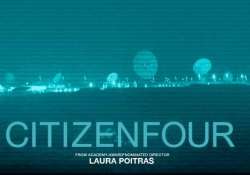'Citizenfour', Snowden documentary, releases in US
San Francisco: "Citizenfour," a documentary about former US intelligence operative Edward Snowden, garnered praise and criticism over the weekend in its debut at US theatres, while the US remains divided between those who consider him

San Francisco: "Citizenfour," a documentary about former US intelligence operative Edward Snowden, garnered praise and criticism over the weekend in its debut at US theatres, while the US remains divided between those who consider him a hero and others who call him a traitor.
The movie, directed by US journalist Laura Poitras, opens with a blurred image of a tunnel filmed from a moving vehicle.
Poitras, who now lives in Berlin, explains how authorities started stopping her routinely at US airports when she took on producing documentaries about government abuses, and recalled how she got an anonymous e-mail from an individual using the "citizenfour" screen name in 2013.
"You ask me why I chose you. I didn't. You did," the director, who is not seen on the screen, reads in a voiceover of one of the messages she received from Snowden.
Snowden, who obtained temporary asylum in Russia after a massive disclosure of National Security Agency's confidential and secret documents, invited Poitras and American journalist Glenn Greenwald to meet him in Hong Kong to tell them about the US government's surveillance of private citizens and foreign countries.
Audiences can see how this meeting evolved between June 3 and 10, 2013, in room 1014 of the Hong Kong Mira Hotel.
"Citizenfour" describes Snowden's "courage and idealism" when confronted with the dark and malicious powers hunting him, which led The New York Times to label the documentary "biased and partisan", an opinion shared by New York Magazine critic David Edelstein.
The Times noted that a number of journalists who cover subjects such as national security and technology, like Fred Kaplan of Slate magazine, and Michael Cohen, a former Guardian reporter, have also criticised "omissions and simplifications" in Poitras's film.
Criticism aside, The Times said "Citizenfour" highlights, as few films have done so far, the invisible and ubiquitous presence of the modern state, a leviathan endowed with far-reaching coercive resources.
The film reveals that Snowden's girlfriend, who lived with him when the then contractor for the NSA gathered the documents, has joined him in Russia.
In May 2012, Snowden flew from Hawaii to Hong Kong, where he started disclosing secret and confidential information, and he obtained temporary asylum in Russia in August 2013.
The US government has accused Snowden of violating the Anti-Espionage Law and theft of government property, charges on which, if he is convicted, could send him to prison for 30 years.